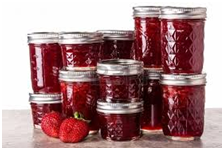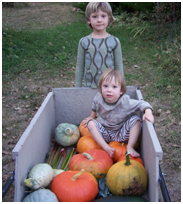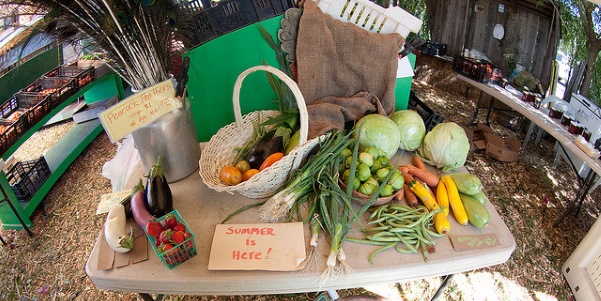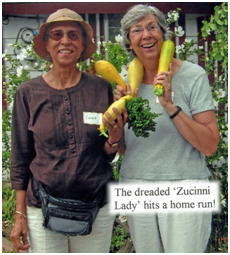During their January retreat, Boulder’s City Council decided to proceed with a two-year long Cottage Foods for Boulder Pilot Project. Boulder’s pilot project will be based on the recent Denver Fresh Produce and Cottage Foods Sales Home Occupation Ordinance, which allows people in residential districts to sell from their homes fresh produce that they grow in their gardens, eggs from their chickens, honey from their bees, as well as other “cottage foods” that they produce in their home kitchens. For more information on Cottage Foods for Boulder, please go to our Facebook page.
I have been leading the effort to get the Cottage Foods for Boulder Pilot Project off the ground. My job at this point is to develop some tips for cottage food producers about how to be a good neighbor. I need your help with this. What would make a neighbor next door to you, who is growing vegetables, keeping chickens or bees, and selling their product, a good neighbor? What kinds of positive actions on their part would minimize conflicts with you? I realize our natural inclinations are to holler out negative “Don’t do A or B” statements. But positive “Please do X or Y” statements are much more helpful. Please email me your suggestions and I will add them to our list. I’ll write another article for the Blue Line with the final list after everyone has a chance to weigh in.
If you have questions about our Cottage Foods for Boulder Pilot Project, here are some FAQs and answers:
So what exactly is “Cottage Food”?
- Colorado’s Cottage Food Act of 2012 allows people to sell certain kinds of food prepared in their home kitchen.
 Only foods that do not require refrigeration and that have an almost negligible chance of making someone sick are permitted. Foods such as honey, jams and jellies, dehydrated produce, spices, teas, nuts, candies, certain baked goods and whole fresh eggs are all allowed.
Only foods that do not require refrigeration and that have an almost negligible chance of making someone sick are permitted. Foods such as honey, jams and jellies, dehydrated produce, spices, teas, nuts, candies, certain baked goods and whole fresh eggs are all allowed. - Foods that require processing are NOT allowed because Colorado’s altitude makes reaching the sterilization point difficult. (But jams and jellies are OK.) So NO meat, NO dairy, NO cut veggies or cut fruit, NO juices, NO veggies in jams/jellies, NO pickles and NO salsas. The Cottage Food Act recognizes that these higher risk foods need to be prepared in a commercial kitchen rather than in a home kitchen.
- To find out more about Colorado’s Cottage Food rules, see the Colorado Department of Public and Environment’s fact sheet.
What are the Denver rules that we want Boulder to copy?
- Retail sale of fresh produce and cottage foods produced by the seller on residential zoned land is allowed. Produce includes herbs and whole, uncut fruits and vegetables that were grown by the person selling them. Produce grown at an urban farm, a community garden or on another person’s land may also be sold at the grower’s place of residence.
- All cottage food products must be sold directly to the consumer, and may not be sold for resale (wholesale).
- Labeling Requirements: Cottage foods must have a label that includes the state-mandated language and be traceable to the seller.
- Food Safety Course Requirements: A cottage food producer must take a food safety course that includes basic food handling training and is comparable to, or is, a course given by the Colorado State University (CSU) Extension or a state, county, or district public health agency, and must maintain a status of good standing, including attending any additional classes if necessary. (Classes cost about $30.)
- Sales Limits: Total net value of sales is limited to $5,000 per item (for example, $5,000 per spinach, etc.). Sales of whole, fresh chicken eggs are limited to less than 250 dozen per month.
- Sales may only be conducted between 8 a.m. and dusk.
- Sales are allowed indoors or outdoors. Only temporary, portable furniture is allowed (example: tables, stands and umbrellas) for outdoor sales and must be taken inside between dusk and 8 a.m. daily.
- Sign rules for all home occupations apply. Signs must be flat, attached to a wall or window of the home, and cannot be more than 100 square inches in size. One sign is allowed per street front (one sign for most lots, two signs for a corner lot). No moving signs and no lit sign(s) are allowed.
- No parking spaces are required. No sales tax is required for food sales and sales prices are determined by the seller.
- Read more about Denver’s rules here.
What are the advantages to the community of a Cottage Foods for Boulder Pilot Project?
 It forges connections between neighbors.
It forges connections between neighbors.- It increases the beneficial use of large suburban lots.
- More food is produced locally.
- It promotes healthy eating.
- It encourages entrepreneurship.
- It provides another possible income stream for folks who are struggling to make ends meet.
- It allows would-be farmers to hone skills and products, before graduating to the Boulder Farmer’s Market.
Where is the Cottage Foods for Boulder Pilot Project in the city process right now?
-
Carl Castillo, Policy Advisor for the City of Boulder is the point person on drafting an ordinance for the Cottage Foods for Boulder Pilot Project. He is meeting with City Attorney Tom Carr and with Denver city staff to understand the issues and the language necessary for a Boulder ordinance. He wants to have the Pilot Project ordinance drafted to present to Council by April.
- To get updates and calls to action, email me and ask to be put on our email list. You can also check in with our Facebook page to get the latest news.
- There will be opportunities to give feedback about the proposed language in the ordinance in the future.
Thanks for reading through all of this! Don‘t forget to email your Good-Neighbor Tips to me ASAP. Call with any questions: 303-449-7532. Many thanks!







 (2 votes, average: 4.50 out of 5)
(2 votes, average: 4.50 out of 5)